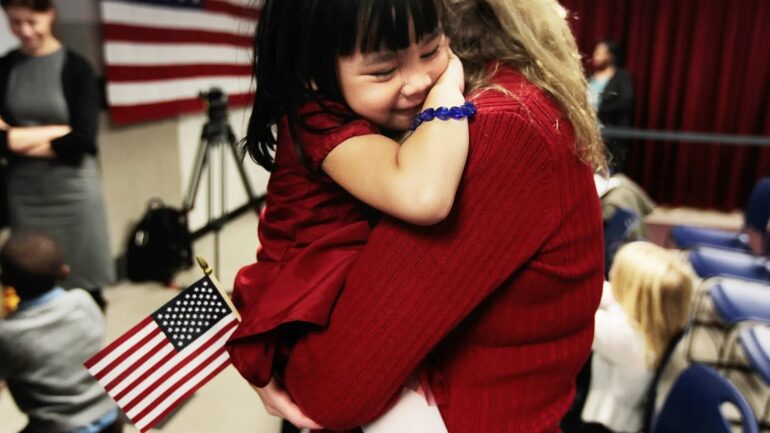China will no longer allow foreign adoption of the country’s children, leaving only one exception for blood relatives to adopt a child or stepchild, a spokeswoman for the Chinese Foreign Ministry announced earlier this month.
China formally opened its doors for international adoptions in 1992. Since then more than 160,000 children have been adopted from families all around the world; 82,000 of those children have gone to the United States, more than anywhere else in the world. Inter-country adoptions have largely been suspended since 2020 due to the COVID-19 pandemic leaving many children destitute as in-country adoption rates are also low. For many countries, inter-country adoption has resumed or will be doing so soon, but such is not the case in China.
Mao also confirmed that China would “not continue to process cases at any stage,” barring cases which fall under the exception. While Mao thanked families “for their desire and love in adopting children from China,” the new policy leaves many prospective adoptive parents heartbroken and has created much uncertainty for hundreds of U.S. families. Cherish Children Adoption International remarked in a statement immediately following the decision, “We have been spending our day grieving with our waiting China families on the phone and will continue to do so in the coming weeks and months.”
By the end of the 1970s, many government officials began to worry that there were not enough children being born to sustain their population. Although the one-child policy ended in 2015 and Beijing formally revised the law to allow couples to have up to three children in 2021, birth rates in the country have fallen drastically. In 2023 the number of babies being born fell to 90.2 million and the overall population declined for the second year in a row. Many have speculated that the plummeting birth rates may have been cause for their decision.
According to government officials, there were nearly 343,000 orphans in China as of 2019 and only 8,432 children were adopted within the country in 2022. Some have pointed out that for some countries, the opportunity that inter-country adoption provides greatly increases the likelihood that a child is adopted at all. In contrast, others question the ethics of inter-country adoption and emphasize the importance of remembering cultural heritage and the unique struggle of adoptees.
To read more about the struggle of inter-country adoptees, you can check out the Collegian article, Identity is Nipping at My Heels by Marcie Hughes.
Photo courtesy of Getty Images.




